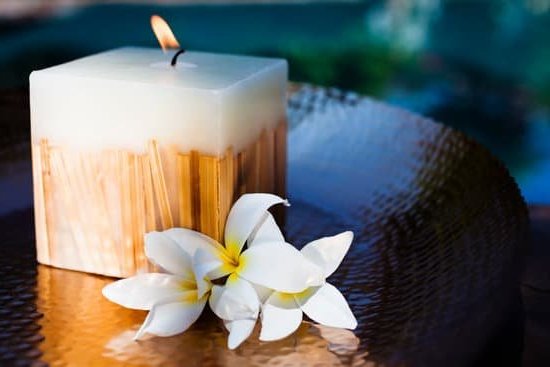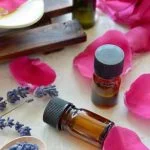Aromatherapy uses for cinnamon are as diverse as they are intriguing. The warm, comforting aroma of cinnamon has been revered for centuries for its therapeutic properties, making it a popular choice in aromatherapy practices. In this article, we delve into the essence of using cinnamon in aromatherapy and explore its various benefits and applications.
Throughout history, cinnamon has been highly prized not only for its culinary uses but also for its medicinal properties. Dating back to ancient times, it has been used in traditional medicine to treat a variety of ailments. Today, cinnamon essential oil is a key player in the world of aromatherapy, known for its soothing and calming effects on both the body and mind.
When it comes to aromatherapy, cinnamon essential oil offers a wide range of health benefits. From boosting circulation and relieving muscle tension to improving digestion and reducing stress levels, the potential uses of cinnamon in aromatherapy are vast. Whether used alone or blended with other essential oils, incorporating cinnamon into your aromatherapy practice can have a positive impact on your overall well-being.
The History of Cinnamon as a Therapeutic Aromatherapy Ingredient
Cinnamon has a rich history dating back thousands of years, where it was highly valued for its medicinal and aromatic properties. Its use in aromatherapy can be traced back to ancient civilizations such as Egypt, where it was used for its healing benefits and in religious rituals. The sweet and spicy aroma of cinnamon is not only pleasing to the senses but also carries therapeutic benefits that have been recognized for centuries.
In traditional Chinese medicine, cinnamon was often used to improve circulation, reduce inflammation, and boost immunity. It was believed to have warming properties that could stimulate the body’s natural healing mechanisms. Similarly, in Ayurveda, the ancient Indian system of medicine, cinnamon was used to balance the body’s doshas and enhance overall well-being. These historical uses highlight the versatile nature of cinnamon as a therapeutic aromatherapy ingredient.
Today, cinnamon essential oil is commonly used in aromatherapy for its various health benefits. It is known for its antibacterial, antifungal, and anti-inflammatory properties, making it a valuable addition to any essential oil collection.
When used in aromatherapy, cinnamon essential oil can help alleviate symptoms of respiratory conditions like colds and coughs, as well as provide relief from muscle pain and arthritis. With its powerful scent and potent healing properties, cinnamon continues to be a popular choice for those seeking natural solutions for their well-being.
- Ancient civilizations revered cinnamon for its healing properties
- Traditional Chinese medicine utilized cinnamon to improve circulation
- Ayurveda incorporated cinnamon to balance the body’s doshas
Understanding the Health Benefits of Cinnamon Essential Oil in Aromatherapy
Cinnamon essential oil is a popular choice in the world of aromatherapy due to its numerous health benefits. This essential oil is derived from the bark of the Cinnamomum tree and has been used for centuries for its medicinal properties.
One of the key benefits of cinnamon essential oil is its ability to act as a natural antibacterial and antifungal agent, making it effective in fighting off infections and boosting the immune system. Additionally, cinnamon oil is known for its anti-inflammatory properties, which can help reduce inflammation in the body and alleviate various types of pain.
In aromatherapy, cinnamon essential oil is often used to promote better circulation and improve cardiovascular health. The warming properties of this oil make it an excellent choice for stimulating blood flow and relieving symptoms associated with poor circulation, such as cold hands and feet. Furthermore, the invigorating aroma of cinnamon can help increase mental alertness and concentration, making it a great choice for use during work or study sessions.
When used in aromatherapy, cinnamon essential oil can also serve as a natural mood booster. Its warm and comforting scent can help uplift spirits, reduce feelings of anxiety or depression, and promote overall emotional well-being. Whether diffused in the air or added to bath water, cinnamon essential oil can create a soothing and calming ambiance that helps relieve stress and tension after a long day.
| Health Benefits | Applications |
|---|---|
| Antibacterial & Antifungal Properties | Fighting off infections & boosting immunity |
| Anti-Inflammatory Properties | Reducing inflammation & alleviating pain |
| Improved Circulation | Stimulating blood flow & relieving symptoms of poor circulation |
Different Methods of Using Cinnamon in Aromatherapy
Cinnamon essential oil is a versatile and widely used ingredient in aromatherapy, offering a range of benefits to both the mind and body. When it comes to incorporating cinnamon into your aromatherapy routine, there are several effective methods to choose from: diffusers, inhalation, and topical application. Each method has its unique advantages and can cater to different preferences and needs.
One popular way to enjoy the aromatic benefits of cinnamon is through the use of diffusers. By adding a few drops of cinnamon essential oil to a diffuser, you can fill your space with its warm and spicy fragrance, creating a cozy and inviting atmosphere.
Diffusing cinnamon oil not only helps freshen the air but can also promote feelings of relaxation and comfort, making it ideal for unwinding after a long day or setting a calming tone for meditation or yoga practice.
| Aromatherapy Method | Benefits |
|---|---|
| Diffusers | Creates ambiance, promotes relaxation |
| Inhalation | Respiratory support, mood-boosting effects |
Recipes for DIY Aromatherapy Blends Using Cinnamon
Spiced Scented Room Spray
One popular way to incorporate the warm and comforting aroma of cinnamon into your aromatherapy routine is by creating a DIY room spray. To make a spiced scented room spray, you can combine cinnamon essential oil with other complementary scents like clove, orange, and vanilla. Simply mix a few drops of cinnamon essential oil with distilled water and alcohol in a spray bottle, shake well, and spritz around your living space for an instant burst of cozy fragrance.
Cinnamon-Infused Body Lotion
For a luxurious self-care experience, consider adding cinnamon essential oil to your favorite unscented body lotion. Cinnamon has antiseptic properties that can help soothe dry skin and promote overall skin health. By mixing a few drops of cinnamon essential oil into your body lotion, you can create a rich and moisturizing cream that not only hydrates your skin but also envelops you in the sweet and spicy scent of cinnamon.
Calming Cinnamon Bath Soak
Indulge in a relaxing spa-like experience by incorporating cinnamon essential oil into your bath routine. Create a calming cinnamon bath soak by combining Epsom salt, baking soda, coconut oil, and a few drops of cinnamon essential oil.
This aromatic blend will not only help relax your muscles and alleviate tension but also provide a soothing sensory experience that calms the mind. Soaking in a warm bath scented with cinnamon can be the perfect way to unwind after a long day.
By exploring these DIY recipes for aromatherapy blends using cinnamon, you can harness the therapeutic benefits of this versatile spice in various ways to enhance your well-being and create a warm and inviting atmosphere in your home. Incorporating the rich aroma of cinnamon into your daily routine through customized blends allows you to fully experience the benefits of aromatherapy while enjoying the comforting scent of this beloved spice.
Experiment with different combinations and find what works best for you to elevate your aromatherapy practice with the versatile uses of cinnamon essential oil.
The Effectiveness of Cinnamon Aromatherapy in Stress Relief and Relaxation
Cinnamon essential oil has been used in aromatherapy for centuries, not only for its warm and comforting scent but also for its potential therapeutic benefits in stress relief and relaxation. The sweet and spicy aroma of cinnamon can create a sense of calm and tranquility, making it a popular choice for those looking to unwind after a long day or manage feelings of anxiety and tension.
There are various methods to incorporate cinnamon essential oil into your aromatherapy routine to promote stress relief and relaxation. Here are some effective ways to harness the soothing properties of cinnamon:
- Diffuser: Add a few drops of cinnamon essential oil to your diffuser along with water, allowing the aromatic mist to fill the room and create a cozy atmosphere.
- Inhalation: Directly inhaling the scent of cinnamon oil from the bottle or adding a drop to a tissue can help calm the mind and reduce stress levels.
- Topical Application: Dilute cinnamon essential oil with a carrier oil like coconut or almond oil before applying it to pulse points on the body, such as wrists or temples, for a grounding effect.
In addition to its pleasant fragrance, cinnamon essential oil contains compounds that have been studied for their potential health benefits. For example, research suggests that cinnamon may possess anti-inflammatory properties that can help reduce symptoms of stress-related conditions like headaches or muscle tension. By incorporating aromatherapy practices using cinnamon into your daily routine, you may experience improved overall well-being and a greater sense of inner peace.
It is important to note that while cinnamon aromatherapy can be an effective tool for stress relief and relaxation, individuals should exercise caution when using this potent essential oil. Some people may be sensitive to cinnamon oil and could experience skin irritation or allergic reactions.
It is advised to perform a patch test before using any new essential oil topically. Additionally, pregnant women, children, and individuals with certain medical conditions should consult with a healthcare provider before incorporating cinnamon aromatherapy into their wellness regimen.
Cautions and Considerations When Using Cinnamon Essential Oil for Aromatherapy
Cinnamon essential oil is a versatile and potent ingredient that can be used in aromatherapy for its various benefits. However, it is important to use this essential oil with caution and consider some key factors to ensure a safe and effective experience.
Skin Sensitivity
One of the most crucial considerations when using cinnamon essential oil in aromatherapy is its potential to cause skin irritation. Due to its high potency, cinnamon oil should never be directly applied to the skin without being properly diluted with a carrier oil. Even when diluted, it is recommended to perform a patch test on a small area of skin before full application to check for any adverse reactions.
Proper Dosage
Another important factor to keep in mind when using cinnamon essential oil in aromatherapy is the dosage. It is crucial not to exceed the recommended amount of cinnamon oil in any blend or treatment. Overuse of this powerful essential oil can lead to nausea, dizziness, or other unwanted side effects. It’s always best to follow specific recipes and guidelines provided by certified aromatherapists.
Precautions
When incorporating cinnamon essential oil into your aromatherapy practice, it is advisable to consult with a qualified healthcare professional, especially if you have any underlying health conditions or are pregnant or nursing. Cinnamon oil may interact with certain medications or exacerbate certain health issues if not used correctly. It’s always better to err on the side of caution and seek expert advice when unsure about its usage.
By taking these cautions and considerations into account, you can safely harness the aromatic benefits of cinnamon essential oil in your aromatherapy routines while avoiding any potential risks or harmful effects. Remember that proper knowledge and mindfulness are key aspects of enjoying the therapeutic properties of this powerful essential oil effectively and safely.
Conclusion
In conclusion, the versatile cinnamon essential oil offers a wide range of benefits in the practice of aromatherapy. From its rich history as a therapeutic ingredient to its various health benefits, cinnamon adds a warm and comforting touch to any blend. Whether used in diffusers, through inhalation, or applied topically, the aromatic essence of cinnamon can promote relaxation and stress relief. Its spicy and soothing scent creates a cozy atmosphere that can help elevate mood and enhance well-being.
Exploring the world of DIY aromatherapy blends using cinnamon opens up endless possibilities for customization and personalization. By combining cinnamon with other essential oils that complement its properties, individuals can create unique blends tailored to their specific needs and preferences. These blends not only provide aromatic pleasure but also offer a holistic approach to improving overall wellness.
However, it is important to exercise caution when using cinnamon essential oil in aromatherapy due to its potency. Diluting properly and being aware of any potential sensitivities or contraindications are crucial steps to ensure safe use.
With proper knowledge and care, embracing the warmth and wellness of cinnamon aromatherapy can truly enhance one’s self-care routine and promote a sense of balance and harmony in mind, body, and spirit. Incorporating this powerful spice into daily rituals can bring about a feeling of comfort and relaxation that resonates deeply within.
Frequently Asked Questions
How Do You Use Cinnamon in a Diffuser?
When using cinnamon in a diffuser, it can create a warm, comforting ambiance in your space. Simply add a few drops of cinnamon essential oil to the water in your diffuser and let it disperse throughout the room. The sweet, spicy aroma of cinnamon can help create a cozy atmosphere, promote relaxation, and even help with focus and concentration.
What Is the Spiritual Meaning of Cinnamon?
In terms of spiritual meaning, cinnamon is often associated with prosperity, success, and protection. It is believed to bring abundance into one’s life and attract financial wealth.
Cinnamon also carries a sense of warmth and comfort, making it an excellent choice for promoting positive energies in your surroundings. Some people believe that burning cinnamon incense or diffusing cinnamon oil can cleanse negative energy and bring about a sense of balance and harmony.
Is Cinnamon Safe to Diffuse?
While cinnamon is generally safe to diffuse in moderate amounts, it’s important to use caution due to its potent nature. Some individuals may be sensitive or allergic to cinnamon oil, so always start with just a few drops in your diffuser and monitor how you react to it.
Additionally, if you have pets in your home, be cautious as some animals may have adverse reactions to certain essential oils like cinnamon. Always consult with a healthcare professional or aromatherapist before using any essential oils if you have concerns about safety or potential side effects.

Are you looking for a natural way to improve your health and wellbeing?
If so, aromatherapy may be the answer for you.





